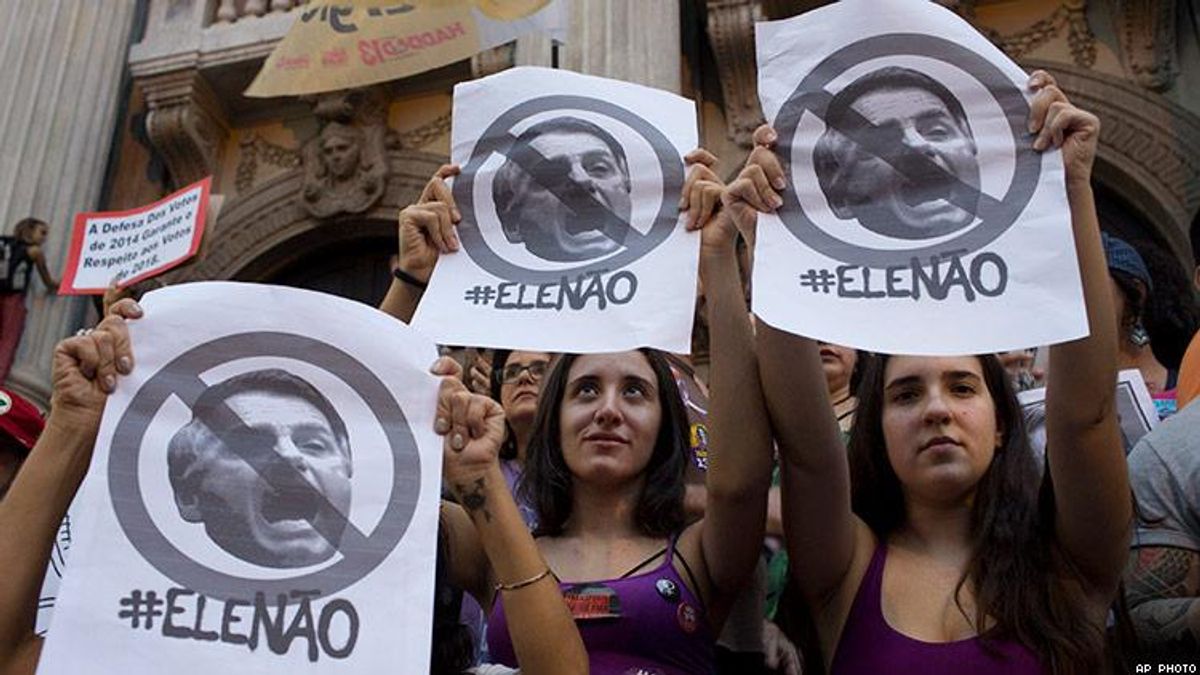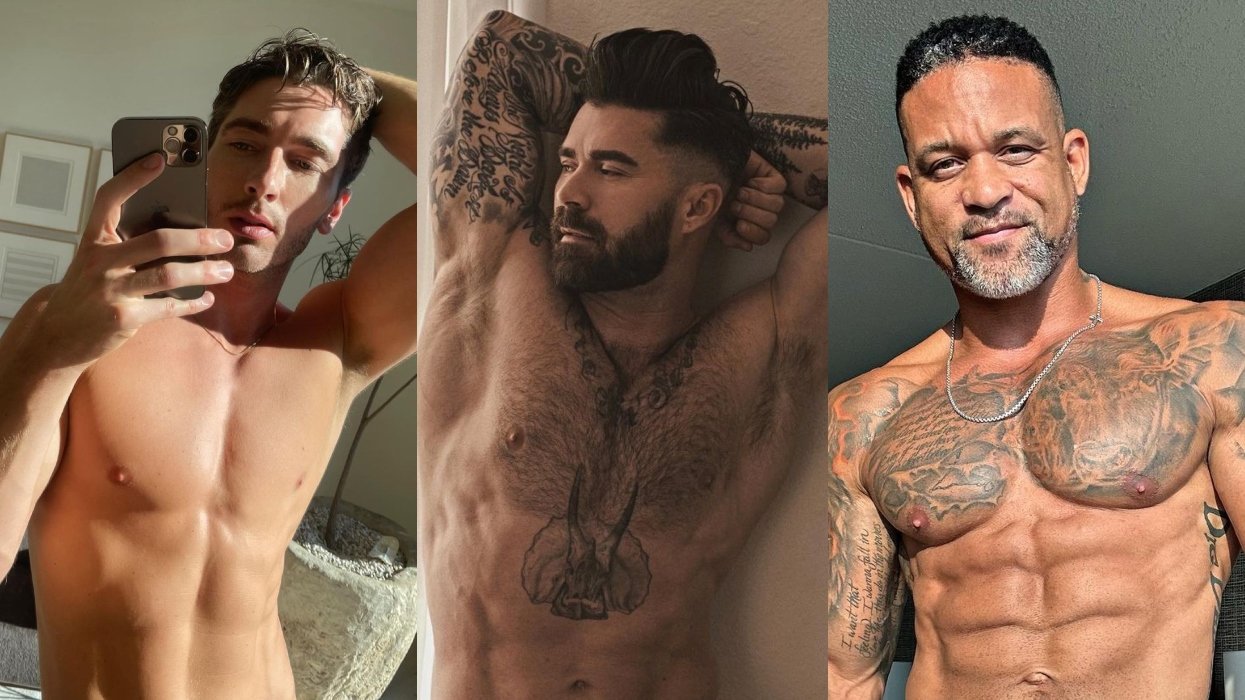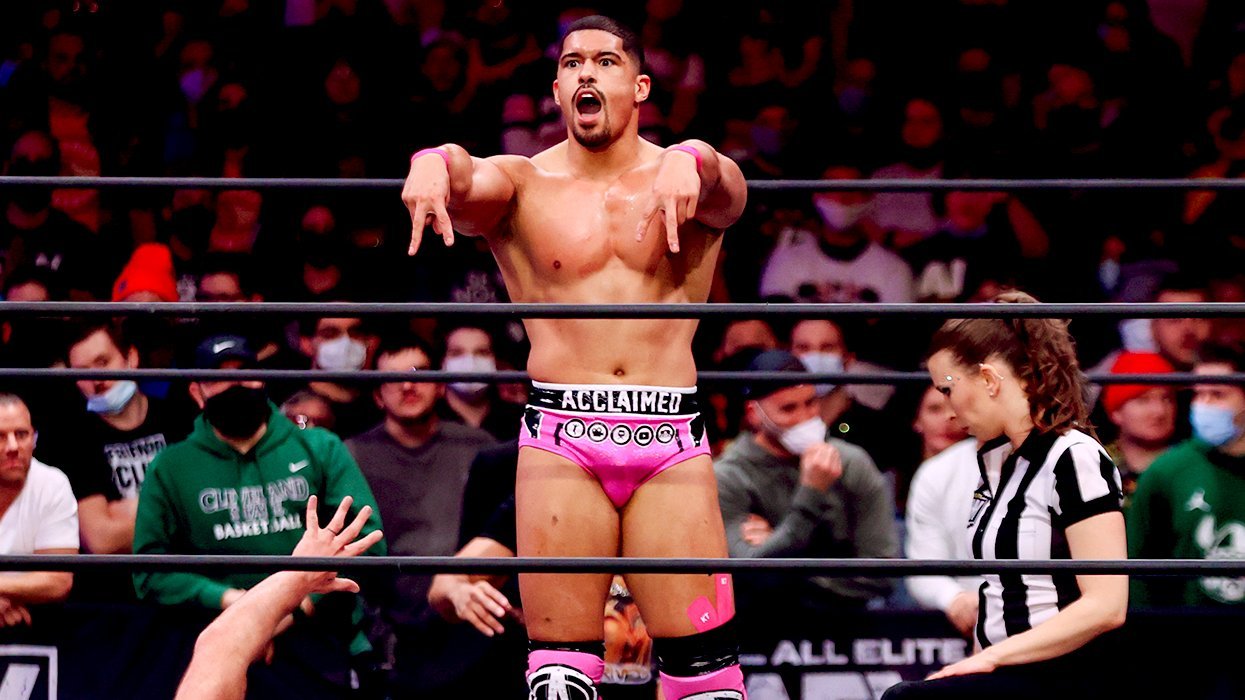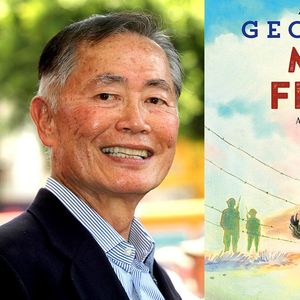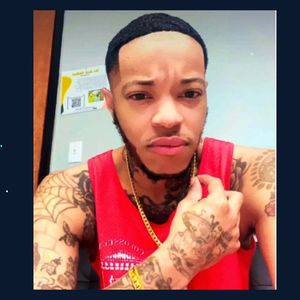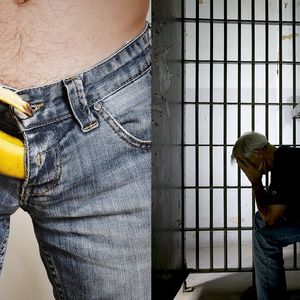Brazil's new president Jair Bolsonaro isn't wasting any time fulfilling campaign promises to favor "Christian values" over the rights and protections of LGBTQ citizens.
The former army captain was sworn in on January 1, to cheers by his former troops and within his first 48 hours in office, Bolsonaro issued a flurry of new orders that seem ripped right from Donald Trump's playbook.
One directs his new human rights minister -- an evangelical pastor -- to ignore all complaints and violations involving lesbians, gays, bisexuals, transgender, and queer Brazilians. Another executive order threatens indigenous people's protected lands. He forced out the head of Brazil's environmental protection agency. A guide to STDs for trans men was eliminated from a government website. The president also merged the ministries of culture, sports, and social development into a single department, which critics fear will drastically undercut funding for public art, youth fitness programs, and fighting hunger. As an art dealer told Smithsonian, "It's a very dark time in Brazil."
His actions are of little surprise for activists on the ground and international watchdogs like Human Rights Watch. "President Jair Bolsonaro has made openly homophobic comments," noted Graeme Reid, director of the LGBT rights program at HRW. "Before he took office, he publicly declared that he is proud to be homophobic and that he would rather have a dead son than a gay son."
"The new president is explicitly homophobic, biphobic and transphobic, especially after some declarations he has said during his mandate as a Congressman and also during his campaign running for president," Salomao Cunha Lima, from GAMES, an LGBTQ employment organization in Sao Paulo, told Out. "His words have empowered fascist, homophobic and racist people, who started feeling free to commit hate crimes against this population. This scenario has created a panic feeling for the LGBT community, who are afraid of suffering any kinds of violence as well as concerned with the fact that public policies for this population are under threat, as the new Minister of Human Rights is a pastor with a high conservative speech, what is a contradiction for this position."
Still, activists from Sao Paulo to New York worry Bolsonaro's hardline conservative policies will further endanger equality for all marginalized groups, but especially LGBTQ+ Brazilians.
"Our constitution guarantees that we are all equal -- but this equality is at risk," said Maite Schneider of Transempregos, an advocacy group for Brazil's statistically unsafe transgender population.
Her native country is both one of the most LGBTQ-friendly places on Earth -- with marriage equality, legal recognition for trans people, and the world-famous Sao Paulo Pride celebration -- as well as the deadliest. The average life expectancy for trans women in Brazil is about 36 years, according to a 2016 report by the Human Rights Campaign.
LGBT people in Brazil "remain vulnerable and experience high levels of violence" said Graeme Reid of the international organization, Human Rights Watch. "There are good laws and civil society is strong and resolute, but trans women are especially vulnerable to violence."
Cunha Lima surmises, "Brazil has the highest rates of trans people mortality due to transphobic motivations. Even though the new government declares the rights obtained by trans people in Brazil will be guaranteed, because of the massive conservative population who has elected Bolsonaro, it's hard to believe this government will keep the promise alive."
Being vocal about who you are can be fatal in some instances. Human rights activist Monica Benicio produced a new documentary, Marielle and Monica, which directly challenges the movement that put Bolsonaro in power. Benicio was set to wed her partner Marielle Franco this year until Franco was gunned down.
"I don't question at all that it was a political crime," Benicio told The Guardian. "She was our only black female councilor -- a black lesbian woman from the favelas occupying a position of power that's predominantly reserved for the white men who make up this 'Brazilian elite.'"
According to Grupo Gay de Bahia, which tracks homicides in Brazil, such violence is at an epidemic level: In 2017, a record 387 murders of people who identified as LGBTQ+ were recorded; there were 346 as of October 2018, with 167 trans people slain last year.
"Transgender people have always been the target of hatred in our country," said Schneider. Brazil has led the world in the number of murders of trans people for more than a decade. Trans people are "aberrations and sinners" to Brazil's fervent Christians, Schneider said, and that includes people like Damares Alves, Bolsonaro's new human rights minister.
Shortly after taking office, she said, "Girls will be princesses and boys will be princes. There will be no more ideological indoctrination of children and teenagers in Brazil," the Associated Press reports. She's also long declared that "the Brazilian family is being threatened" by diversity policies.
However, Bolsonaro, Alves and their allies favor legislation to curtail comprehensive sex education in schools, which Human Rights Watch calls "a recipe for making schools unsafe for LGBT kids."
According to Toni Reis, the president of Alianca Nacional LGBTI+, Alves came across as sympathetic at a December meeting with around 30 national LGBTQ networks and allied organizations. "She was particularly moved by the testimonies of trans women at the meeting, Reis told Out, "and promised to make efforts to ensure greater inclusion of them in the world of work."
Despite all this, just in the two weeks, Reis and Schneider said they remain hopeful that Bolsonaro cannot reverse their hard-fought marriage equality and transgender rights.
"There has been some apprehension that these rights may be affected," Reis told Out. "But the view of the president of the Supreme Court is that these constitutional rights cannot be withdrawn."
"We have always had to fight hard to ensure that we have guaranteed minimum rights, such as security, health, the right to [change our] name, identity, education and work," Schneider wrote. "Together we are not only stronger. We are unbeatable."
Just in case, however, same-sex couples took no chances as 2018 drew to a close. Notaries in Brazil recorded a 66 percent surge in weddings of gay couples in November.
Lucas Nascimento and Felipe Lima were among 40 couples who wed en masse one day last month in Sao Paulo. Nascimento summed up their decision to speed-up their nuptials as "an act of resistance."
"We want to show the world that we don't condone the ideas that the newly elected president uses to preach to his supporters," he said to ITV. "We obviously love each other, but today we are committing a political act."
